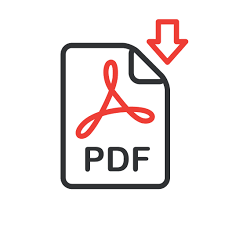Some people believe that if you do not have your health, you have nothing. Health has reached the top position on the human scale of values. We wish it to each other on various occasions. We are afraid of losing it. However, sometimes we are too careless and risk our own health as well as the health of people around us.
There are two extreme attitudes to health: you can either be fussy or indifferent. Fussy individuals are preoccupied with their physical condition; they anxiously note each real or imaginary symptom. They tend to complain about their health and seem to have a pill for every kind of physical discomfort. Indifferent people do not care much about their health and they usually ignore the warning signals of their bodies. They avoid seeing doctors and are somewhat irritable patients. There is one more group of people who fall into this category: addicts of every kind. Smokers, drinkers, drug addicts, gamblers and extreme sport enthusiasts are those who voluntarily risk their health. The middle-of-the-road approach seems the most appropriate. You neither overestimate nor underestimate your health.
Prevention is always better than treatment. That is why we are strongly encouraged to keep fit and healthy. This does not necessarily mean you must become a vegetarian or a devoted sportsman. But paying more attention to what you eat and how much you eat is a good idea. So is taking some exercise and keeping in shape.
However hard we try, it is impossible to completely avoid falling ill. Getting a cold or flu, especially in the cold, wet winter months, seems almost inevitable. When that happens, we should listen to our body and help it recover as soon as possible. If you feel really poorly, it is always a good idea to see your GP and follow his or her instructions. Never take any medicine that is not recommended or prescribed for you!
The recent Covid pandemic has caused many people to challenge their own thinking on health. For some vaccination is an absolute must and they cannot understand people who do not think the same way. Others argue that we live in a free world and we can choose whether to have a vaccine or not. Whatever our views the pandemic has certainly altered our lives for ever.
Finally, let us think about the first sentence of this article. It suggests that life cannot be enjoyed if there is problem with your health. On the one hand, we must admit that is true. Poor health is limiting. On the other hand, we all know or have heard of people suffering from incurable diseases or disabled people who are able to live their lives to the fullest despite their health problems.
At this point we should realize that health is a gift that should be cherished.
Answer the questions:
- What kind of patient are you when you´re ill?
- Have you ever had an accident or serious injury? If so, describe what happened. If not, tell about accident you know about.
- Are you satisfied with your doctor? Why? Why not? What would you like to change?
- Do you think most doctors do their jobs well?
- Some people happily accept vaccination for polio, measles etc. but are reluctant to have Covid jabs – is this logical?

